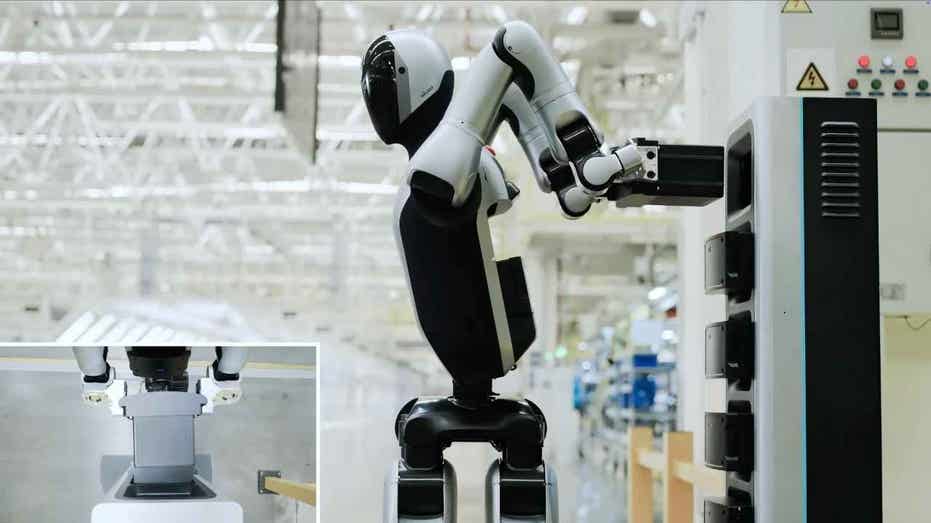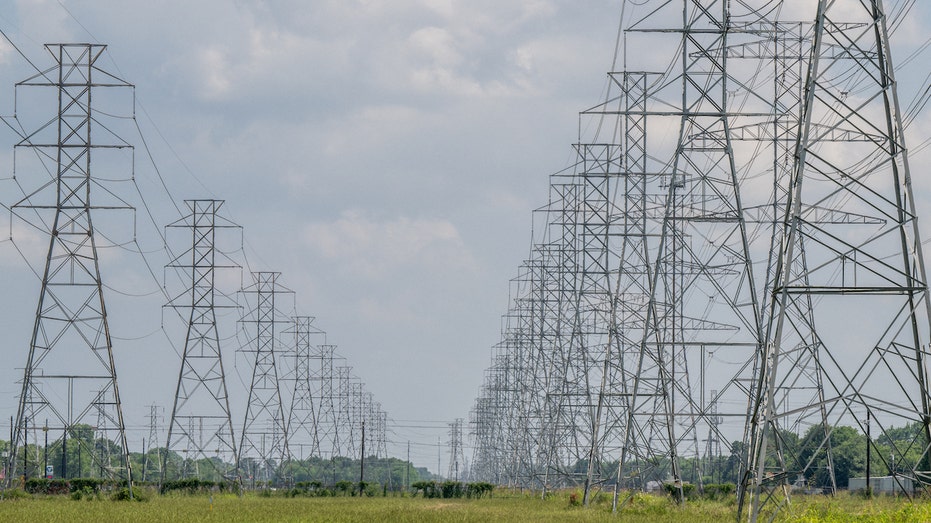📰 Humanoid robot swaps its own battery to work 24/7

UBTech has developed a humanoid robot called the Walker S2 that can swap out its own battery, allowing it to work almost nonstop without human intervention. The robot walks to a nearby swap station when its battery runs low, replacing it in about three minutes. This battery-swapping system is similar to technology used in electric vehicles. The Walker S2 has been tested in car factories and features vision systems to detect battery levels. China is heavily investing in robotics, with projects ranging from humanoids to delivery robots, aiming to lead the next era of manufacturing with automation. Robots like the Walker S2 could be seen in various workplaces, offering continuous operation and increased output without additional staff.
📰 This EV has a face, and it talks back with AI

Faraday Future, based in LA, has introduced the FX Super One, an electric vehicle featuring the F.A.C.E., an expressive LED grille that gives the car personality through light, sound, and emotional cues. The car offers flexibility and intelligence with two powertrain options, all-wheel drive, and a spacious interior called Magic Space. The F.A.C.E. uses AI to sense people nearby, respond to voice commands, and show dynamic visuals, enhancing the connection between driver and machine. The FX Super One also includes smart safety tools and intelligent assistance to reduce risk and collaborate with the driver. Faraday Future plans to start production in late 2025, targeting a price under $100,000 and emphasizing a new era of mobility focused on personality and human connection.
📰 How to stop spam mail, political texts and email spam for good

The article discusses the issue of spam mail, unwanted emails, and political texts inundating people’s mailboxes and inboxes. It highlights the common problem of personal information being shared without consent, leading to a flood of unwanted messages. The story of Deidre from New York illustrates how even well-intentioned actions like donating to charities can result in excessive mailings. The article provides strategies to combat spam, such as contacting charities directly to reduce mailings, registering with DMAchoice to limit promotional mail, and requesting removal from shared lists to prevent further inundation. It also offers tips on handling political texts, including using email aliases, unsubscribing carefully, and investing in personal data removal services to protect privacy and reduce spam. Taking control of how personal information is shared can significantly reduce unwanted messages and distractions across various communication channels.
📰 How AI is changing the way you book airline tickets

Delta Air Lines is implementing a new AI-powered ticket pricing system to personalize airfares based on individual habits and booking history. By the end of the year, Delta aims to set 20% of ticket prices dynamically using AI, a significant increase from the previous year. The AI system analyzes real-time data to calculate what each customer might be willing to pay for a seat on a specific flight. This approach could lead to better deals or higher costs depending on individual circumstances. Other airlines are expected to follow suit in adopting AI-driven pricing systems, but concerns have been raised about potential discrimination and fairness issues.
📰 Why AI is causing summer electricity bills to soar

The article discusses the significant increase in electricity bills due to rising artificial intelligence (AI) electricity demand, particularly driven by data centers supporting AI systems like ChatGPT. PJM Interconnection, the largest power grid operator in the US, reports a sharp climb in electricity usage this summer, with some areas expecting bill increases of up to 20%. The surge in power consumption from AI-related data centers is a key factor behind this trend. PJM’s territory, serving 67 million customers across 13 states, is experiencing strain on the grid, exacerbated by the growing demand from AI and data centers. The cost of expanding power supply to accommodate AI growth is shared among all grid users, leading to potential bill hikes for households and businesses.
The article highlights the challenges faced by the electrical grid as AI demand is set to double, with PJM managing a vast network of power distribution across multiple states. Data centers supporting AI tools are consuming significantly more electricity than traditional centers, impacting overall power costs for consumers. The rapid growth of AI since 2023, with tools like ChatGPT becoming widely used, has led to a surge in electricity demand, contributing to a substantial increase in power costs in the PJM region between 2024 and 2025. The shift towards clean energy sources like wind and solar is hindered by permitting delays and rising costs, affecting the ability to meet the escalating electricity demand driven by AI.
As demand for electricity continues to outpace supply, the article warns of potential challenges in maintaining reliability, especially during peak usage periods or emergencies. The retirement or conversion of fossil fuel plants, along with regulatory and market conditions, are further straining the power supply. To mitigate the risk of blackouts, PJM is implementing demand response programs to incentivize large businesses to reduce electricity usage temporarily. Consumers are advised to expect higher electric bills, with residential prices potentially increasing by $25 or more per month and commercial rates climbing nearly 30%. The article emphasizes the need for infrastructure upgrades and smarter energy policies to address the growing AI-related electricity demand and its impact on consumers.
0개의 댓글